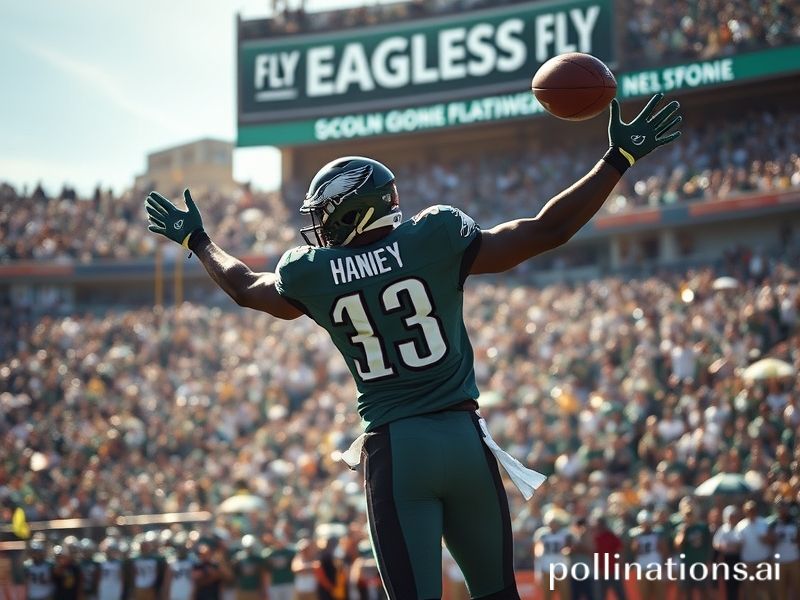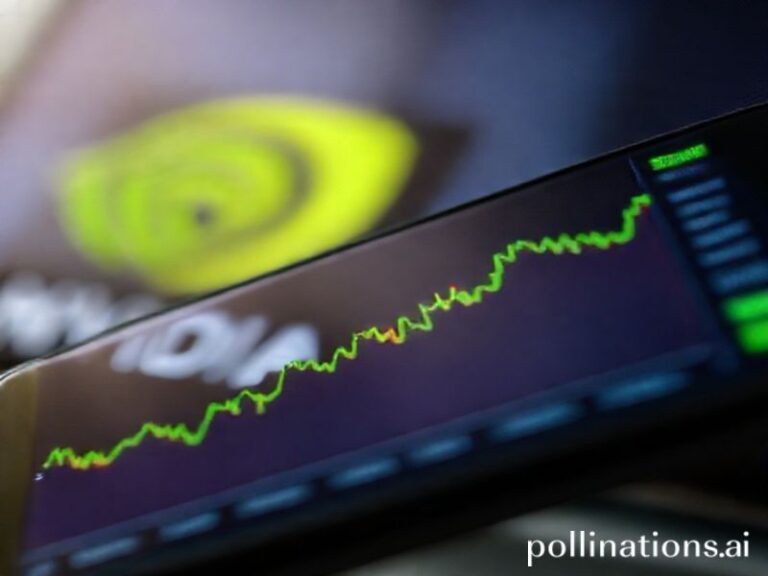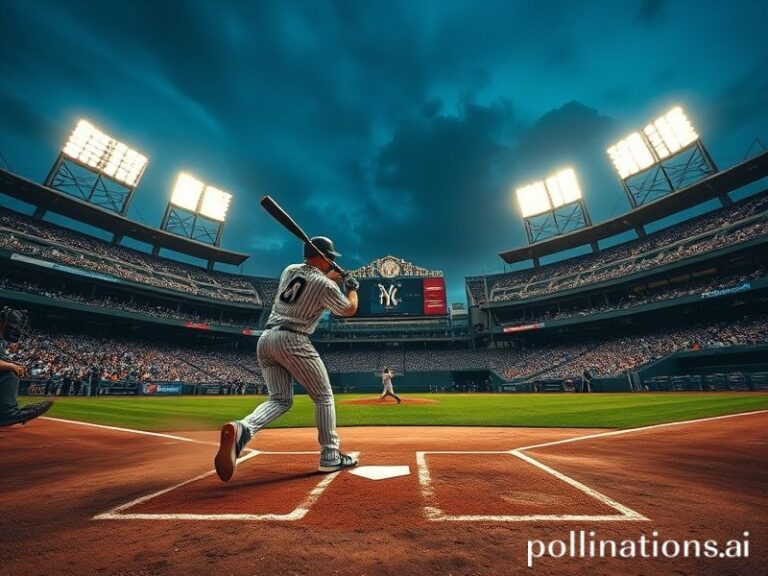Global Wings & Local Wounds: How One Eagles Sunday Holds a Fractured World Together—Barely
The Eagles Game Sunday: A Feathered Gladiator Show for a Planet on Fire
By Our Correspondent in a Press Box That Still Smells of Yesterday’s Bratwurst
Sunday in Philadelphia—where the Liberty Bell’s crack is merely foreshadowing for what the local offensive line might become—means only one thing: the Eagles are playing. For the uninitiated, this is not a wildlife documentary but rather a ritualized collision of 300-pound men in Lycra, cheered on by 69,000 citizens who have voluntarily painted their faces the color of arterial blood. From an international perch, the spectacle looks less like sport and more like a fever dream exported by the last empire still capable of broadcasting commercials for pickup trucks every 90 seconds.
Consider the global supply chain required for three hours of gridiron theater. The synthetic turf under cleated feet is manufactured in Northern Ireland, stitched by Malaysian robots, and shipped across oceans that are, incidentally, rising faster than the Eagles’ playoff hopes. The players’ helmets contain polycarbonate pellets produced in Germany, molded in Mexico, and assembled somewhere in Ohio—because even the most American of icons outsources the grunt work. Meanwhile, the microchips embedded in every shoulder pad to track “player load” are mined from Congolese coltan by laborers who will never afford a ticket, let alone comprehend why grown men need biometric readouts to chase an oblate ball.
Viewed from Dakar to Delhi, the game is live-streamed on platforms that harvest data the way a combine harvester reaps wheat—except the combine at least leaves stubble. In Lagos, taxi drivers huddle around cracked Android screens, wagering naira on Jalen Hurts’ rushing yards because the local currency has all the structural integrity of the Cowboys’ playoff defense. In Seoul, insomniac traders follow the score as a proxy for U.S. consumer confidence—if Philadelphia fans can still afford nine-dollar light beer, the Fed must not be done tightening. And in Kyiv, where air-raid sirens provide their own halftime show, a battered satellite dish pulls in the broadcast as proof that normalcy, however absurd, still exists somewhere.
The geopolitics of halftime deserve their own Security Council resolution. Rihanna’s airborne platform last year required two 747 freighters to haul scaffolding that briefly doubled Gibraltar’s GDP. This year’s act—rumored to be a K-pop septet flown in on a single Dreamliner fueled by 30% sustainable aviation fuel—has already sparked a minor diplomatic incident after North Korea accused the Eagles of cultural imperialism. Pyongyang’s state media claims the team’s “winged predator” logo is an unsubtle nod to U.S. drone policy; Washington’s response was a 280-character shrug from a Pentagon intern who thought “Pyongyang” was a new slot receiver.
Back inside the stadium, the crowd performs the national anthem with the solemnity of a tax audit. Fighter jets scream overhead, burning roughly 5,600 pounds of jet fuel—enough, by unfortunate coincidence, to power the average Bangladeshi village for a month. No one seems to notice; they’re too busy toggling between betting apps and replay angles of a 12-yard slant route. In the luxury suites, oil sheikhs, crypto barons, and a hedge-fund guy who once shorted baby formula discuss second-half cover spreads while migrant workers outside hawk bootleg T-shirts that will disintegrate faster than the Eagles’ salary cap.
Come the fourth quarter, when the score is closer than most global credit spreads, the planet’s attention converges on a single question: will the kicker, whose childhood in Australia was spent punting rugby balls at wallabies, send a 52-yard field goal through uprights that symbolize nothing so much as the arbitrary goalposts of late-stage capitalism? If he does, Philadelphia will riot in joy; if he misses, Philadelphia will riot in disappointment. Either way, local news will call it “passion,” insurance companies will call it “a pre-existing condition,” and the rest of us will call it Monday.
As the final whistle blows, the broadcast cuts to an ad for a multinational bank that just laid off 10,000 employees but still found budget to sponsor the postgame show. Somewhere offshore, a container ship loaded with tomorrow’s officially licensed merchandise steams toward ports that may not exist by next season. And in the press box, your correspondent files this dispatch, sipping a coffee that tastes remarkably like regret with hints of Colombian despair. The Eagles won, or maybe lost; the details fade like campaign promises. What lingers is the knowledge that for one Sunday, a fractured world agreed—however briefly—to obsess over the flight path of an inflated leather projectile. If that’s not unity, it’s at least a better diversion than the evening news.







